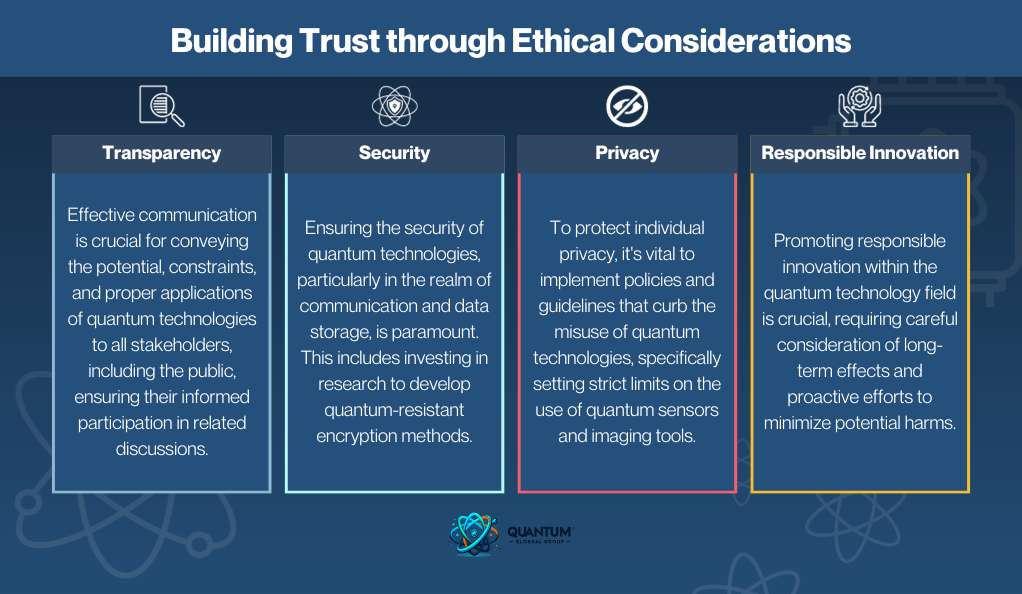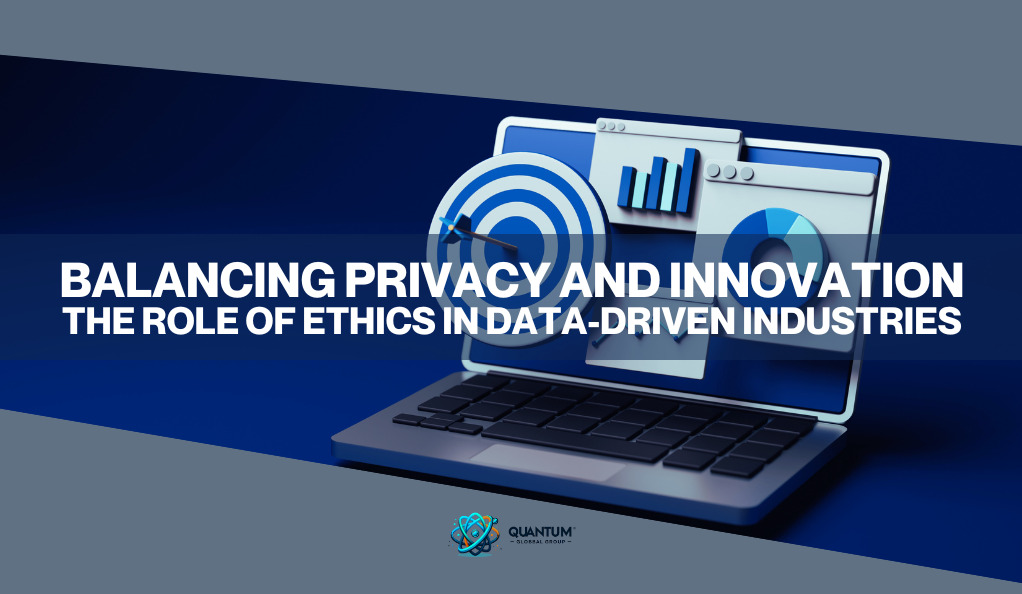In the realm of scientific advancements, quantum technologies stand out as one of the most groundbreaking and transformative fields. These technologies, rooted in the principles of quantum mechanics, have the potential to revolutionize various sectors, from computing and communication to medicine and materials science. As we stand on the cusp of a quantum revolution, it becomes imperative to understand not only the capabilities of these technologies but also the ethical considerations that accompany them.
What are Quantum Technologies?
Quantum technologies harness the unique properties of quantum mechanics, the fundamental theory in physics that describes the behavior of matter and energy on the smallest scales. Unlike classical mechanics, where objects have definite states, quantum mechanics allows particles to exist in multiple states simultaneously, a phenomenon known as superposition. Additionally, particles can be “entangled,” meaning the state of one particle can instantaneously influence the state of another, regardless of the distance between them.
These quantum phenomena have paved the way for a new wave of technologies. For instance:
- Quantum Computers: Unlike classical computers that use bits (0s and 1s) to process information, quantum computers use quantum bits or qubits. Qubits can exist in both 0 and 1 states simultaneously, allowing quantum computers to perform complex calculations at unprecedented speeds.
- Quantum Sensors: These sensors can detect minute changes in their environment by leveraging quantum superposition and entanglement. They have applications in fields like medicine, where they can detect tiny amounts of a substance in a sample.
- Quantum Cryptography: This involves using quantum principles to develop secure communication methods. Any attempt to eavesdrop on a quantum-encrypted message would disturb the quantum states, making the intrusion detectable.
The Ethical Dimension
While the potential of quantum technologies is vast, they also introduce new challenges and ethical dilemmas. How do we ensure the privacy and security of data in a world with quantum computers? How do we prevent the misuse of quantum technologies in warfare or surveillance? As we delve deeper into the quantum realm, it becomes crucial to address these questions and build a framework of trust around these emerging technologies.
Understanding Quantum Technologies
Quantum technologies leverage the principles of quantum mechanics, offering capabilities far beyond what classical technologies can achieve. Here, we delve into the core principles that underpin these technologies and explore some of their most promising applications.
Quantum Mechanics: A Brief Overview

Quantum mechanics describes the behavior of particles at the atomic and subatomic levels. It introduces concepts that are fundamentally different from classical physics. Key principles include:
- Superposition: Particles can exist in multiple states at once, only taking a definite state when observed.
- Entanglement: Particles become intertwined and the state of one instantly influences the state of the other, regardless of distance.
- Quantum Tunneling: Particles can pass through barriers that would be insurmountable in classical physics.
Emerging Quantum Technologies
These quantum principles have given rise to a range of technologies, each with the potential to transform industries and improve lives.
- Quantum Computing: Utilizing qubits that can represent 0 and 1 simultaneously, quantum computers can solve complex problems much faster than classical computers. They hold promise for advancements in material science, optimization problems, and cryptography.
- Quantum Sensors: These sensors exploit quantum superposition and entanglement to detect changes in the environment with unprecedented precision. Applications range from medical imaging to navigation systems.
- Quantum Cryptography: This technology uses quantum principles to secure communication channels. It is deemed to be unbreakable, as any attempt to eavesdrop would disturb the quantum states and be immediately detectable.
- Quantum Imaging: Quantum imaging techniques can capture information that is not accessible to classical imaging technologies, with applications in science, medicine, and security.
The Potential and Challenges Ahead
The potential of quantum technologies is vast, but realizing this potential requires overcoming significant technical challenges. Quantum computers, for instance, are highly susceptible to errors and require extremely low temperatures to operate. Quantum sensors demand an environment free from any form of interference.
The Ethical Implications of Quantum Technologies
The advent of quantum technologies brings forth a paradigm shift, not just in terms of technical capabilities, but also in the ethical landscape. The power of these technologies necessitates a careful examination of their potential impacts on society, security, and individual rights.
Risks and Challenges
Data Security: Quantum computers have the potential to break current cryptographic systems, posing a significant threat to data security. This necessitates the development of quantum-resistant encryption methods to safeguard sensitive information.
Privacy Concerns: The enhanced capabilities of quantum sensors and imaging technologies could be used in ways that infringe on individual privacy. Striking a balance between technological advancement and privacy rights is crucial.
Dual Use: Like many advanced technologies, quantum technologies have dual-use potential. They can be used for beneficial purposes, such as secure communication and medical imaging, but also for malicious purposes, such as creating unbreakable codes for illicit activities or enhancing surveillance capabilities.
Building Trust through Ethical Considerations

Trust in quantum technologies can only be established if their development and deployment are guided by strong ethical principles. This involves:
- Transparency: Clear communication about the capabilities, limitations, and intended use of quantum technologies is essential. Stakeholders, including the public, should be informed and involved in discussions about these technologies.
- Security: Ensuring the security of quantum technologies, particularly in the realm of communication and data storage, is paramount. This includes investing in research to develop quantum-resistant encryption methods.
- Privacy: Policies and guidelines must be in place to prevent the misuse of quantum technologies in ways that infringe on individual privacy. This includes establishing clear boundaries on the use of quantum sensors and imaging technologies.
- Responsible Innovation: Encouraging a culture of responsible innovation in the quantum technology sector is essential. This involves considering the potential long-term impacts of these technologies and actively working to mitigate any negative consequences.
Quantum Secure Communication
The unique properties of quantum mechanics open up new possibilities for secure communication, ensuring confidentiality and integrity in data transmission. Quantum Key Distribution (QKD) stands at the forefront of these developments, offering a method to secure communication channels in a way that is theoretically immune to eavesdropping.
Quantum Key Distribution: A Paradigm Shift
QKD utilizes the principles of quantum mechanics to securely distribute encryption keys between two parties. If an eavesdropper attempts to intercept the key, the quantum states of the particles carrying the key will be disturbed, and the intrusion can be detected. This ensures that any communication encrypted with the distributed key remains confidential.
Ensuring Secure Communication in a Quantum World
The advent of quantum computers poses a significant threat to traditional encryption methods. Algorithms that are currently considered secure could potentially be broken in a matter of seconds with a sufficiently powerful quantum computer. QKD and other quantum-safe cryptographic methods are essential to ensuring the security of communication in the post-quantum era.
Challenges and Future Prospects
Despite its promise, QKD is not without its challenges. Implementing QKD on a large scale requires a robust infrastructure of quantum networks, which is still in the developmental stage. Additionally, ensuring the practical security of QKD systems against potential attacks and technical imperfections is an ongoing area of research.
Quantum Computing and Data Privacy
Quantum computing represents a significant leap forward in computational capabilities, but it also introduces new challenges in the realm of data privacy. The power of quantum computers to process information at unprecedented speeds has profound implications for encryption and the protection of sensitive data.
Breaking Current Cryptographic Systems
Most of today’s encryption methods rely on the difficulty of solving certain mathematical problems, such as factoring large numbers or solving discrete logarithms. For classical computers, these problems are computationally intensive and time-consuming, making the encryption secure. However, quantum computers, with their ability to perform parallel computations, could solve these problems much more quickly, rendering current encryption methods vulnerable.
The Need for Quantum-Resistant Encryption
To counteract the potential threat posed by quantum computers, there is a pressing need to develop and implement quantum-resistant encryption methods. These methods are designed to be secure against both classical and quantum computational attacks, ensuring the protection of data even in a post-quantum world.
Balancing Innovation and Privacy

As we navigate the transition to a quantum computing era, balancing the drive for innovation with the need to protect data privacy is crucial. This requires:
- Allocate Resources for Research: To develop quantum-resistant encryption methods, it is crucial to dedicate resources to research and development.
- Evaluate and Update Security Protocols: Existing security protocols should undergo evaluation and updating to ensure their quantum resistance.
- Raise Public Awareness and Educate: Essential steps include raising awareness about the potential impact of quantum computing on data privacy and educating the public about the measures being taken to mitigate these risks.
Ethical Guidelines for Quantum Research
Quantum technologies, with their transformative potential, also bring forth a myriad of ethical considerations. As researchers and developers push the boundaries of what’s possible in the quantum realm, it’s essential to have a robust framework of ethical guidelines to ensure responsible development and deployment.
The Role of Ethical Guidelines
Ethical guidelines serve as a compass, guiding researchers and developers in making decisions that align with societal values and norms. They:
Ensure Responsible Research: Ethical guidelines promote quantum research conducted with integrity, transparency, and respect for human rights.
Prevent Misuse: By setting clear boundaries, ethical guidelines help prevent the potential misuse of quantum technologies in areas like surveillance, warfare, or illicit activities.
Build Public Trust: Ethical guidelines prioritize societal well-being, fostering public trust in the development and deployment of quantum technologies.
Examples of Existing Guidelines
Several organizations and research institutions have recognized the need for ethical guidelines in quantum research. Some examples include:
- The Quantum Community Network (QCN): This network has proposed guidelines that emphasize transparency, inclusivity, and the responsible use of quantum technologies.
- International Quantum Research Consortium (IQRC): The IQRC has developed a code of ethics that focuses on data privacy, security, and the prevention of dual-use scenarios in quantum research.
- National Quantum Initiatives: Many countries have launched national quantum initiatives that include ethical considerations as a core component, ensuring that quantum research aligns with national and global values.
The Future of Quantum Technologies and Ethics
As we venture further into the era of quantum technologies, anticipating their future trajectory and the ethical considerations that will arise is crucial. The rapid pace of innovation in this field holds the potential for transformative changes, but it also requires taking a proactive approach to address ethical considerations, ensuring responsible development and deployment of these technologies.
Predicting the Future of Quantum Technologies
The future of quantum technologies is set to experience significant advancements across various domains:
- Quantum Computing: We can expect quantum computers to become more stable, scalable, and accessible, opening up new possibilities in fields such as material science, artificial intelligence, and complex system simulations.
- Quantum Communication: The development of global quantum networks will enable secure communication across vast distances, revolutionizing the way we transmit information.
- Quantum Sensing and Imaging: Enhanced precision and sensitivity in quantum sensors and imaging devices will lead to breakthroughs in medicine, navigation, and environmental monitoring.
Ethical Considerations in the Quantum Future
As these technologies evolve, so too must our approach to their ethical implications:
- Data Privacy and Security: The need for quantum-resistant encryption will become even more critical as quantum computers become more powerful. Ensuring the privacy and security of data in a quantum world will be a top priority.
- Equitable Access: A significant challenge lies in ensuring that quantum technologies distribute their benefits equitably across various sectors of society and regions worldwide.
- Regulation and Oversight: Developing comprehensive regulations and oversight mechanisms to govern the use of quantum technologies will be essential in preventing misuse and ensuring ethical deployment.
- Public Engagement: Crucially, building trust and ensuring the development of quantum technologies aligns with societal values will depend on actively engaging the public in discussions about their potential impacts and ethical considerations.
Conclusion
Venturing into the quantum realm holds immense promise in technology and science, with potential for industry transformation and enhanced security. Yet, it also brings ethical challenges that demand careful navigation.
To build trust in quantum technologies, a collaborative effort is essential. We must establish ethical guidelines, invest responsibly, and engage in transparent discussions to ensure these advancements benefit humanity, uphold individual rights, and maintain trust in our technological progress.




